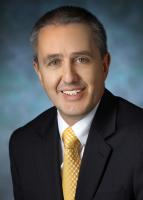Traumatic brain injury (TBI), a form of acquired brain injury, occurs when a sudden trauma causes damage to the brain. TBI can result when the head suddenly and violently hits an object, or when an object pierces the skull and enters brain tissue, with or without a loss of consciousness. Symptoms of a TBI can be mild, moderate, or severe, depending on the extent of the damage to the brain, effecting how you think, feel, remember, and communicate. A person with a mild TBI may experience headaches, confusion, lightheadedness, dizziness, tired eyes, ringing in the ears, bad taste in the mouth, fatigue, a change in sleep patterns, behavioral or mood changes, and trouble with memory, concentration. A person with a moderate or severe TBI may show these same symptoms, but may also have a headache that gets worse or does not go away, repeated vomiting or nausea, convulsions or seizures, an inability to awaken from sleep, dilation of one or both pupils of the eyes, slurred speech, weakness or numbness in the extremities, loss of coordination, restlessness, or agitation.
Researchers at the National Institutes of Health (NIH) are pursuing studies with an overall focus and goal of understanding the natural history of traumatic brain injuries, specifically through the use of Magnetic Resonance Imaging (MRI) to better identify, classify, and treat TBI early after injury. Our natural history studies currently enroll and are performed at MedStar Washington Hospital Center in Washington, DC; Suburban Hospital and National Institutes of Health Clinical Center, both located in Bethesda, Maryland. These studies are the primary studies through which we screen patients with brain injuries to enroll in additional research protocols for the NIH and the Center for Neuroscience and Regenerative Medicine (CNRM). No investigational treatments will be administered on these primary studies and the NIH physicians serve as a consultant to the patient’s primary physician. The majority of our studies involve imagining utilizing MRI to better understand various characteristics of the brain.
Anyone with signs of moderate or severe TBI should receive medical attention as soon as possible. As little can be done to reverse the initial brain damage caused by trauma, medical personnel try to stabilize an individual with TBI, and focus on preventing further injury. Disabilities resulting from a TBI depend upon the severity of the injury, the location of the injury, and the age and general health of the individual. Some known disabilities include problems with cognition, sensory processing, expression and understanding communication, and behavior or mental health (depression, anxiety, personality changes, aggression, acting out, and social inappropriateness).
If you are a patient interested in participating in one of our research studies for traumatic brain injury, please contact:
Anita Moses, MSN, RN
Research Nurse
Center for Neuroscience and Regenerative Medicine (CNRM)
TBI Acute Studies Core
10 Center Drive, Room B1D-733, MSC 1063
National Institute of Neurological Disorders and Stroke (NINDS)
Phone: 301-435-1929
Fax: 301-480-0413
OR
Patient Recruitment and Public Liaison Office toll-free at:
1-800-411-1222
TTY: 1-866-411-1010


